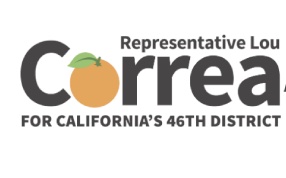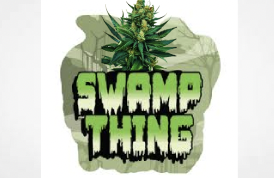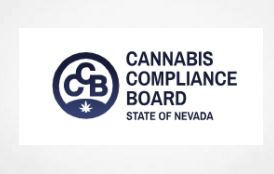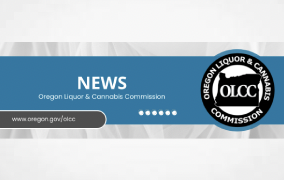Marijuana Moment reports
A bipartisan pair of federal lawmakers are rebranding and relaunching a congressional caucus to promote research into and awareness around psychedelic-assisted therapy, hoping to shine a light on the practice’s potential to treat a variety of mental health conditions.
The renamed Congressional Psychedelics Advancing Therapies (PATH) Caucus, which was described exclusively to Marijuana Moment ahead of its formal announcement in a press release on Thursday morning, aims to inform fellow lawmakers of the growing evidence from leading research institutions that therapy involving substances like psilocybin and MDMA can help effectively treat PTSD, depression and substance use disorder.
Read more at
Congressional Lawmakers Relaunch Psychedelics Caucus To Promote Studies On Therapeutic Use
March 02, 2023
REPS. CORREA, BERGMAN RE-LAUNCH BIPARTISAN CAUCUS TO EXPLORE PSYCHEDELIC RESEARCH FOR MENTAL HEALTH
WASHINGTON, D.C. – Today, Representatives Lou Correa (CA-46) and Jack Bergman (MI-01) announced the re-launch of their Congressional Psychedelics Advancing Therapies (PATH) Caucus for the 118th Congress. The Caucus will address ways to alleviate the national mental health crisis through psychedelic science and research.
“Psychedelic-assisted therapies have shown incredible lasting potential to treat depression, substance use disorder, and PTSD. Further clinical research is necessary—we must learn more about what additional diseases and disorders these compounds can successfully treat, but we should also learn what they don’t work for,” said Rep. Correa, co-chair of the PATH Caucus. “If these treatments can save the lives of my constituents and fellow Americans, and are safe to receive in clinical settings, why would we not want to research them?”
“We are suffering from a mental health crisis in our Nation. While its impacts have been felt in every community, our Veterans and servicemembers continue to struggle at a higher rate than their civilian peers,” said Rep. Bergman, co-chair of the PATH Caucus. “Unfortunately, current medical interventions have proven inadequate and too often fail to help those in the greatest need. Psychedelic assisted therapies have shown incredible promise to combat the effects of post-traumatic stress disorder, medication resistant depression, and substance use disorder. Our caucus will dive deeper into these emerging therapies, work with leaders to ensure they are effective and safe, and continue seeking ways to best help those who have sacrificed so much for our Nation.”
Background: The goal and purpose of the PATH Caucus is to promote rigorous and urgent clinical research into the efficacy of psychedelics in treating brain health conditions, in accordance with the law. Therefore, this caucus is not for advancement of psychedelics for other uses, including legalization for recreational use or decriminalization of the compounds.
The goals of the PATH Caucus will be to:
- seek to increase awareness among members of Congress, their staff, and the media of evidence-based psychedelic science and research based on FDA-approved clinical trials psychedelic-assisted psychotherapy (PaT)
- hold regular briefings on Capitol Hill to keep members of Congress and their staff informed of the latest psychedelic science and research news
- support increased federal funding for psychedelic science, medicine, and R&D and champion other legislative policies and priorities of importance to the research and science community
- highlight priorities on behalf of interested members of Congress to external stakeholders and the Executive branch
- convene bipartisan thought leaders to educate Congress on the evidence around the research and science
Why do we need the PATH Caucus?
- According to the National Institute of Mental Health (NIMH), approximately 50 million Americans have any mental illness (AMI) at any given time, of which 13 million Americans have serious mental illness (SMI). These numbers have increased due to the COVID-19 pandemic, lockdowns, and economic hardship that followed
- Most Americans struggling with mental illness, including clinical depression and PTSD, take medication as primary treatment. Unfortunately, the majority of patients with these conditions do not receive adequate benefit from currently available medications.
- Mental health continues to be a relentless challenge for Americans who serve, or have served, in our nation’s armed forces. Every day, 17 veterans take their own lives – a number that has remained stubbornly persistent despite existing pharmacological and psychotherapeutic treatments.
- Research conducted at leading institutions and universities nationwide shows that in a medically controlled setting with expert screening and preparation, psychedelics can relieve anxiety, depression, PTSD, and substance use disorder. These trials show dramatic results. When used with medical screening and support, it could be more effective at treating some psychiatric disorders than existing treatments and without taking daily medication. A single treatment has improved symptoms for months, and even years.
- The U.S. Food and Drug Administration granted breakthrough therapy designation to MDMA and psilocybin in 2017 and 2019, respectively. According to the FDA, “Breakthrough Therapy designation is a process designed to expedite the development and review of drugs that are intended to treat a serious condition, and preliminary clinical evidence indicates that the drug may demonstrate substantial improvement over available therapy on clinically significant endpoints.” Additionally, in September 2021, the Acting Director of National Drug Control Policy recommended reducing barriers to research using Schedule I substances.
- Johns Hopkins University and New York University are advancing FDA-approved clinical trials using psychedelics to treat addictions and other mental disorders. The Icahn School of Medicine at Mount Sinai is conducting trials of psilocybin-assisted psychotherapy and MDMA-assisted psychotherapy in PTSD in conjunction with the James J. Peters Department of Veterans Affairs Medical Center. The Dana Farber Cancer Institute of Harvard Medical School is working on a clinical trial using psilocybin for hospice patients. Yale University is performing multiple trials assessing psilocybin for depression, headache disorders, and obsessive compulsive disorder (OCD).


















